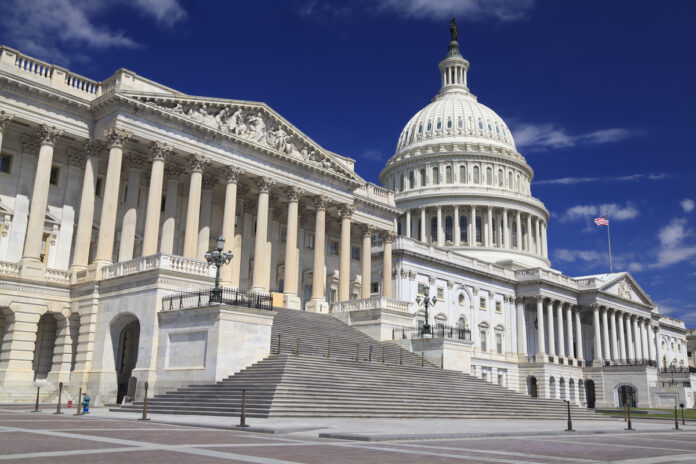WASHINGTON, D.C. – The U.S. House of Representatives today passed an amendment that would prohibit the Department of Justice from interfering with state and tribal cannabis programs. Representative Earl Blumenauer (D-Ore.) authored the amendment, which is attached to must-pass spending legislation.
Part of H.R. 7617, the Department of Defense Appropriations Act 2021, Amendment 87 protects state-legal cannabis businesses from federal intervention by restricting the use of taxpayer dollars to enforce federal anti-marijuana laws.
“None of the funds made available by this Act to the Department of Justice may be used, with respect to any of the States of Alabama, Alaska, Arizona, Arkansas, California, Colorado, Connecticut, Delaware, Florida, Georgia, Hawaii, Illinois, Indiana, Iowa, Kentucky, Louisiana, Maine, Maryland, Massachusetts, Michigan, Minnesota, Mississippi, Missouri, Montana, Nevada, New Hampshire, New Jersey, New Mexico, New York, North Carolina, North Dakota, Ohio, Oklahoma, Oregon, Pennsylvania, Rhode Island, South Carolina, Tennessee, Texas, Utah, Vermont, Virginia, Washington, West Virginia, Wisconsin, and Wyoming, or with respect to the District of Columbia, the Commonwealth of the Northern Mariana Islands, Guam, Puerto Rico, or the United States Virgin Islands, to prevent any of them from implementing their own laws that authorize the use, distribution, possession, or cultivation of marijuana,” the amendment states.
Further, “None of the funds made available by this Act to the Department of Justice may be used to prevent any Indian tribe (as such term is defined in section 4 of the Indian Self-Determination and Education Assistance Act (25 U.S.C. 5304)) from enacting or implementing tribal laws that authorize the use, distribution, possession, or cultivation of marijuana.”
The amendment shields all cannabis programs, not simply medical cannabis as budget amendments each year since 2014 have done.
After ten minutes of debate on the House floor, the ayes prevailed during a voice vote.
After Representative Robert Aderholt (R-Ala.), who opposes the amendment, demanded a roll-call record of the vote, further action on the amendment was postponed until an undetermined future time.
Watch the debate below:
“This is the most significant vote on marijuana policy reform that the House of Representatives has taken this year,” said NORML Political Director Justin Strekal. “The importance of this bipartisan vote cannot be overstated as today. Nearly one in four Americans reside in a jurisdiction where the adult use of cannabis is legal under state statute. It is time for Congress to acknowledge this reality and retain these protections in the final spending bill.
“The next logical step for House leadership is to bring legislation to the floor to end prohibition and demonstrate to the American people that the era of marijuana criminalization is drawing to a close,” he concluded.










